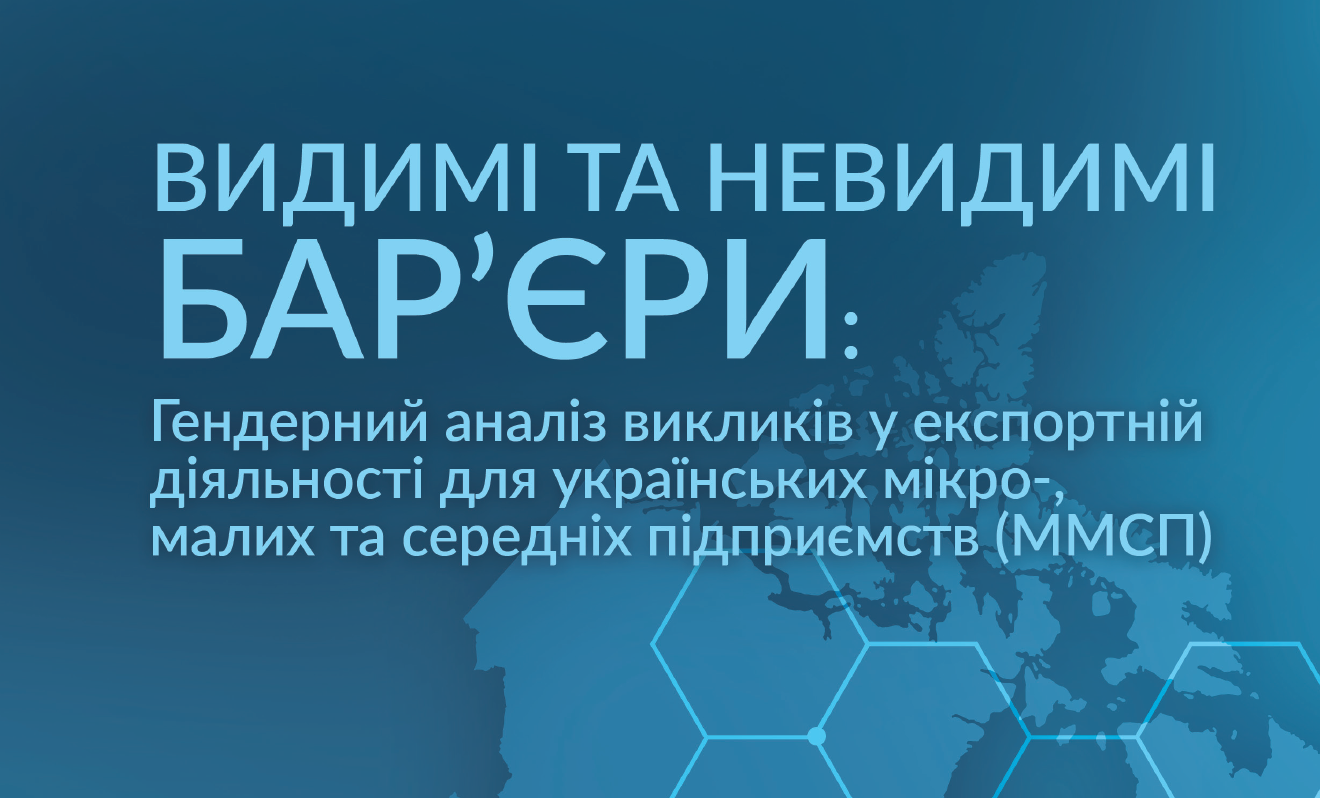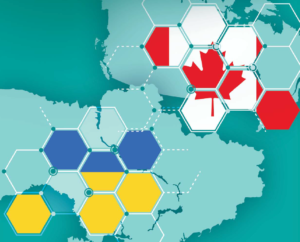
The Canada-Ukraine Trade & Investment Support (CUTIS) project presented the report ‘Visible and Invisible Barriers: a Gender Based Analysis (GBA) of the Export Challenges of Ukrainian micro, small and medium enterprises (MSMEs)’
The main objective of the report was to provide useful policy recommendations to stakeholders on how to lower gender-based barriers to trade for women-owned and women-managed MSMEs. A gender-based analysis was used to examine the key issues facing men and women MSME owners and top managers as they engage in international trade.
Over 100 participants took part in the event including representatives of international and non-governmental organizations, governmental institutions, academia, media, business, and other interested organizations.
The GBA was conducted by a team of academics at the Centre for Social Indicators associated with the Kyiv International Institute of Sociology (KIIS).
In total, 432 men-led MSMEs and 209 women-led MSMEs participated from five target industries – apparel, footwear, furniture, confectionery, and IT services.
This report in its gender analysis adds value to previous research on gender and trade by including the perspectives of export-oriented enterprises.
The GBA report also includes 25 recommendations for public and private stakeholders to overcome gender-related barriers. It is our hope that these recommendations spark further discussion and action to bring about a more level playing field for men and women in international trade.
To download the report please follow this link
The Canada-Ukraine Trade and Investment Support (CUTIS) Project is a 5-year (2016-2021) Canadian development assistance initiative designed to lower poverty in Ukraine through increasing exports from Ukraine to Canada and investment from Canada to Ukraine. The project funded by the Canadian Government through the Global Affairs Canada and implemented by the Conference Board of Canada in partnership with the Canada-Ukraine Chamber of Commerce.
The CUTIS project implements U CAN EXPORT Support Program in five priority sectors: clothing, footwear, furniture, confectionery, and IT services.




